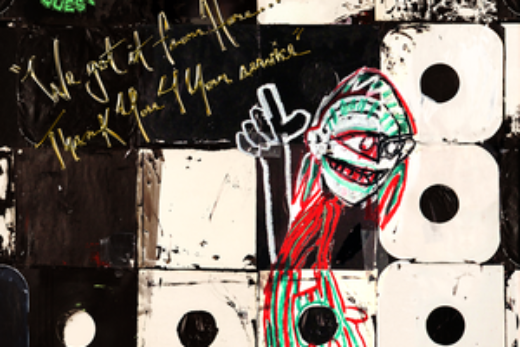I was very pleasantly surprised to see this morning that Light in the Attic announced the release of Betty Davis’s long-buried Columbia recordings from 1968 and ’69. I’ve known this release was coming but was asked to keep it under wraps and to be honest, I forgot it was even due out this week until I read this morning’s press release. It’s hard to overstate how excited people – myself especially! – am about this. For years, we were told the Columbia songs were off limits and that there was a snowball’s chance in hell that anyone would officially be allowed to listen to them. Well, apparently the mercury fell in Hades recently.
I wrote something more formal about the release for NPR but here’s a quick primer on what these songs are all about:
So…uh, what are these songs all about?
Betty Davis, then still Betty Mabry, was already putting together a career for herself in the mid-1960s. She recorded an early and rather forgettable Northern track, “Get Ready For Betty” in 1964 and duet-ed with Roy Arlington on a different single sometime in that same era, “I’ll Be There.” In 1967, she wrote “Uptown” for the Chambers Brothers and soon thereafter briefly became involved with Hugh Masekela, right around when he was blowing up on the strength of “Grazing In the Grass.”
For all these reasons, she caught the attention of folks at Columbia Records who, in 1968, released her second solo single (still as Betty Mabry): “It’s My Life” b/w “Live, Love, Learn,” both songs arranged by Masekela. Almost immediately after her breakup with Masekela, her and Miles Davis became involved in a whirlwind relationship that saw them dating, married and divorced in barely a year.
During that time, Miles agreed to help produce a handful of demo songs for Betty (along with Ted Macero) and in the spring of 1969, they entered the 52nd St. Studios of Columbia, along with seasoned players like Herbie Hancock and Wayne Shorter, to record the songs for the session.
So these are demos?
More or less, yes but demo songs recorded at one of the best studios in the country, produced by some of the most important jazz artists in history so they sound a bit better than something whipped together in someone’s garage.
What songs were recorded then?
It was split between a couple of covers, including a sizzling version of Cream’s “Politician Man” and a trio of Mabry originals. I suspect fans of her later funk output from 1973 onward will gravitate to “Down Home Girl,” which pays tribute to both her gutbucket roots as well as a not-so-coy celebration of her sexuality, which would later become a key part of her iconic personality. I think it’s important to note here that on the vast majority of the songs she recorded for Columbia, she held sole writing credit. Betty worked with incredible, important collaborators but creatively, she was always her own person.
What happened to the songs?
Miles tried to shop a deal for Betty with them but didn’t find much traction. Columbia passed and apparently, so did Atlantic. You have to remember that especially in 1969, there wasn’t a bounty of Black female solo artists releasing albums in a funk/rock vein. And to be sure, almost none of these songs were as good as what she’d recorded later. By the time Betty released her eponymous debut on Just Sunshine in 1973, she’d taken a huge leap forward, musically speaking. In any case, the tapes ended up back in the vaults at Columbia.
No one ever thought to release them in some fashion?
Oh, people tried. Fans of Betty have known about these recordings for years and countless people approached Columbia about the possibility of releasing the songs. Now, everything I’ve heard about this is second-hand so take it with a grain of salt but my understanding is that even as there was all this renewed interest in Betty over the past 10+ years, the folks who controlled the Columbia tapes – which could have been folks at the label or people connected with Miles’s estate, it’s not clear to me – had no desire to let them out.
There were a few pirated rips out there; I heard one of the takes of “Politician Man,” years ago and there was always some rumor that so-and-so had the “full album” but I don’t think there was ever an album’s worth of songs since these were really demo tracks as noted earlier. Regardless, I always assumed that if these songs ever saw the light of day, it would be through some kind of bootleg.
What happened instead?
Great question. I don’t know but I assume the folks at Light In the Attic, who’ve taken the lead of reissuing Betty’s music, managed to finally convince the right people to let them do a proper release for them. And thank god they did!



listened to the clips on the light in the attic website. i can see why it stayed in the can
def. interesting for historical context and all that…
in other news. that boco “running the mardi gras” got reissued saving me about $600 ! 🙂
Bought the gold vinyl on the day it was released at my local record store. Dismayed to find no download code, so I’m now listening to the soundcloud clips someone was kind enough to put online. LITA said that there’s no download code due to rights issues (permission not granted to sell digitally). With that said, I knew very little about the history of this release until I read your blog post, so I’m thankful that it received any release at all. I love her music and am looking forward to the documentary. Thankful for music in times like this. Thank you for your post.